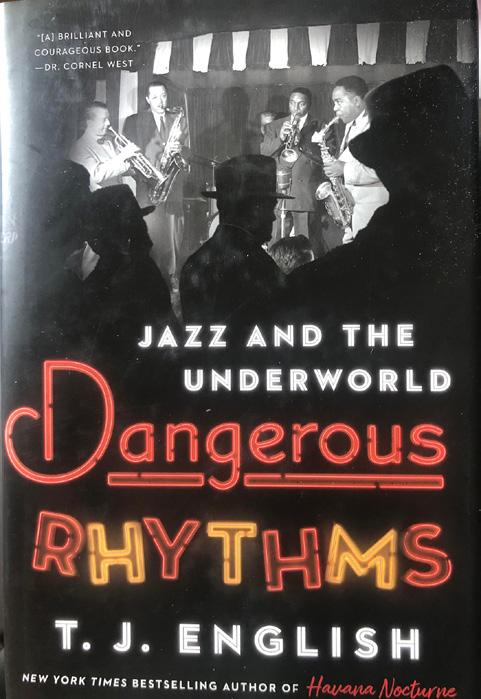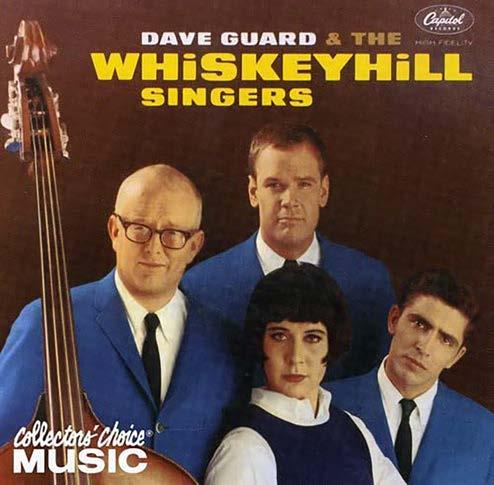
4 minute read
Books 1 Bob Dylan’s The Philosophy of Modern Song
By Des Cowley
THE PHILOSOPHY OF MODERN SONG
Advertisement
By Bob Dylan (Simon & Schuster, h/b)
When it comes to Bob Dylan, the rule of thumb is to expect the unexpected. Back in 2004, he delivered Chronicles, a brilliant and offbeat memoir that managed to conceal as much as it revealed. The book’s cover, emblazoned with the subtitle ‘Volume 1’, whetted the appetite of a gazillion music fans. In the intervening eighteen years, our collective hopes for further volumes have deflated like a leaky balloon, now resembling little more than sad pieces of rubber and latex, entirely devoid of gas. So, what then, are we to make of Bob’s new book, landing without fanfare, that purports to lay bare the genetic code of modern song. Like I said, expect the unexpected. First things first: what we are presented with in this book are 66 brief texts – generally between two and five pages – representing Bob’s riffs on songs that have presumably been important to him, or that uncover aspects of modern song he considers essential or foundational. As you might anticipate, his selection is entirely idiosyncratic. Who amongst us would have chosen to spotlight the Eagles ‘Witchy Woman’, while bypassing the entire recorded output of the Beatles? But there is no point bemoaning what’s missing, it’s a defeatist cause, far better to take Bob on his own terms, and be mindful of what’s before us. One way to approach this book is to think of it as a compilation, its chosen tracks, taken in sequence, forming a weird and composite, albeit fragmented, portrait of its compiler or maker. The book’s opening track sets the scene, Bobby Bare’s 1963 RCA single ‘Detroit City’, written by Danny Dill and Mel Tillis. The song’s unhappy refrain of ‘I wanna go home’, sung with longing and regret, inspires in Dylan a brief meditation on the prodigal son story: “From the postcards and junk mail that you dashed off, everybody assumes you’re a bigwig, that things are cool and beautiful but they’re not, and the disgrace of failure is overwhelming. Your life is unravelling. You came to the big city and you found out things about yourself you didn’t want to know, you’ve been on the dark side too long”. Many of the deliberations in the book read like prose poems, full of kaleidoscopic, dark imagery. They could equally be characterized as shards or discarded offcuts of lyrics that might, when placed end to end, coalesce into another epic ballad like ‘Murder Most Foul’. Throughout, Dylan is putting on masks, trying on voices, treading in the footsteps of these songs. There is nothing overly modern about Dylan’s selection, much of it represents the generation of artists he grew up listening to, singers whose work informed his idea of song: Ray Charles, Johnnie Ray, Johnny Cash, Perry Como, Bing Crosby, Jimmy Webb, Frank Sinatra, Marty Robbins, Bobby Darin, Elvis Presley, Ricky Nelson, Little Richard, Webb Pierce. What’s fresh, however, is the novel way he approaches these songs, coming from behind or left field, rather than head-on. Here’s Dylan on Little Richard’s ‘Tutti Frutti’: “Little Richard was anything but little. He’s saying that something is happening. The world’s gonna fall apart. He’s a preacher. ‘Tutti Frutti’ is sounding the alarm”. And on Ricky Nelson’s ‘Poor Little Fool’: “Now you’re obsolete and out of date, and you’re walking in the night down by the river, but the water’s dead. You’re moving one leg at a time. Another girl has got a hand on your shoulder, you’re not always at your best”. Of the few classic-era rock songs featured, The Who’s decidedly unDylanesque ‘My Generation’ looms large, described as ‘a song that does no favours for anyone…Straight talk, eyeball to eyeball’. Ditto, the Grateful Dead’s ‘Truckin’, described as: “Arrows of neon, flashing marquees, Dallas and a soft machine, Sweet Jane, vitamin C, Bourbon Street, bowling pins, hotel windows, and the classic line, ‘What a long, strange trip it’s been’”. Elvis Costello’s ‘Pump it Up’, one of the more recent contenders, elicits: “It’s the song you sing when you’ve reached boiling point. Tense and uneasy, comes with a discount – with a lot of give-a-way stuff. And you’re going to extend that stuff till it ruptures into a million pieces”. Women artists are arguably short-changed in Dylan’s canon, limited to Rosemary Clooney, Judy Garland, Nina Simone, and Cher. But part of the fun of this book is seeing who’s in and who’s out. Carl Perkins’s ‘Blue Suede Shoes’ feels like a no-brainer, likewise Little Walter’s ‘Key to the Highway’. But neither Jackson’s Browne’s ‘The Pretender’, nor The Allman’s ‘Midnight Rider’ would have struck me as obvious choices, nor for that matter The Fugs’ ‘CIA Man’. Pundits have pointed out there are obvious models for this book, starting with Dylan’s free-wheeling, poetic liner notes for World Gone Wrong. Then there was his mellifluous street-patter heard across the airwaves during his hundred or so episodes of Theme Time Radio Hour. This book, however, affords him a broader canvas than brief liner notes, while at the same time enforcing a greater concision and clarity of thought than a talk show. While there is a plethora of song to be found in these pages, Dylan steers clear of the ‘philosophy’ bit. There is no introduction explaining the why-for or the rationale behind the book, and certainly no concluding chapter laying down a summation of his final thoughts on the mystery of song. It would have been foolhardy to expect otherwise. The book comes beautifully designed and packaged, with period photographs conjuring the enigmatic spirit of Dylan’s prose. The Philosophy of Modern Song doesn’t fill the hole in my shelves awaiting the second volume of Chronicles, but until that day arrives, it will do just fine.











